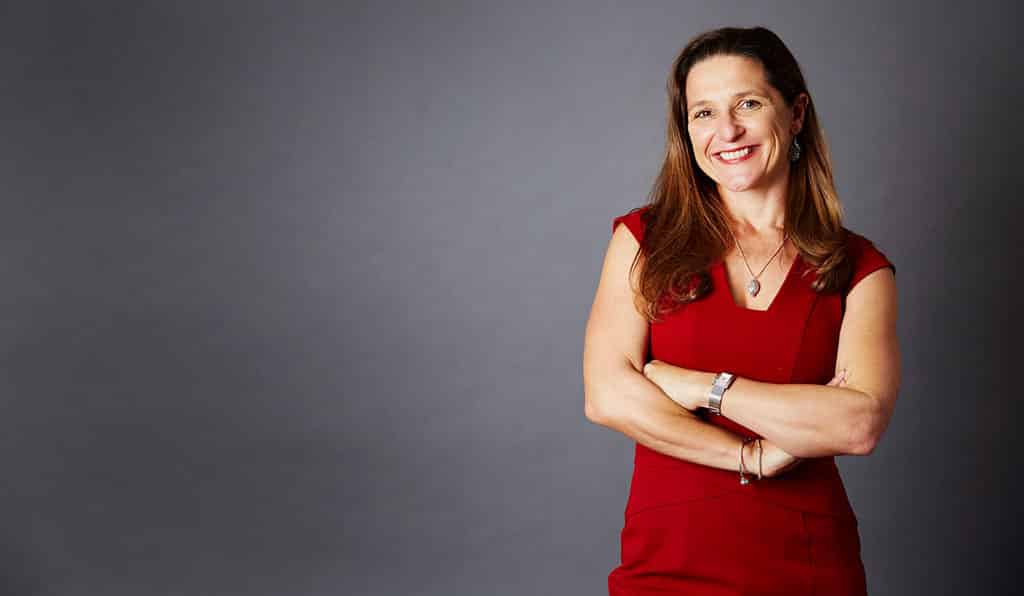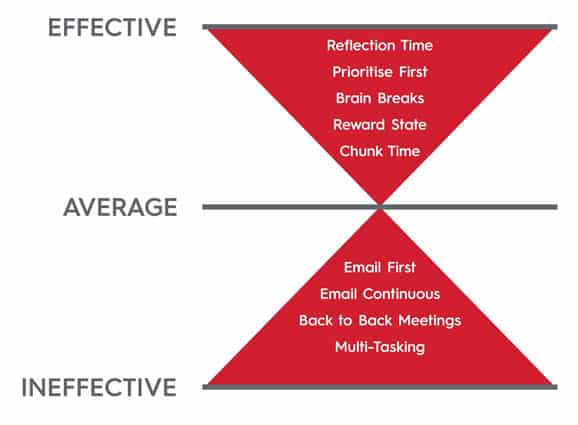Effective habits of a daily leadership life

Despite advances in technology and so many tools to help us plan and work, our work day is busier than ever. Top of the list of things to do are to answer emails and attend meetings. These are time consuming and a waste of time unless run efficiently, leaving less time for the important work of the leader, which is to create, strategise, innovate, think, develop and plan. If everything isn’t taken care of, there is the tendency to feel overwhelmed. Loss of control or total paralysis can follow. There are several strategies that leaders can implement into every working day.
Avoid Multi–tasking
Multi-tasking becomes the order of the day, which ends up being less efficient. In the neuroscience world, multi-tasking is referred to as ‘switching’. This term gives us a clue as to why it might not be as effective as we think in terms of getting things done. By ‘switching’ from task to task, we are having to switch to different parts of the brain to complete a task. To excuse the pun, it’s a ‘no brainer’ that it takes time for this switch as compared to completing one task, followed by another. It’s also much more satisfying to tick off a task on your list than have several that may never get ticked off. There’s a sense of accomplishment when we complete something.
A quick look at this image and you may see where you are being less efficient:
Prioritise Your Day
To regain control and work efficiently, the leader needs a strategy to perform well. The best way to start a work day is to prioritise your work load and become less of a slave to your emails and meeting schedule.
The golden rule in prioritising the day is to not have too many priorities. Select three or four important tasks and schedule them into your day along with your meeting times, checking emails, bathroom breaks, reflection time, time to eat and time for your brain to think. Do this BEFORE checking emails. Once you open your emails, you open a floodgate of tasks and distractions and suddenly you feel overwhelmed and start writing reports and answering emails all at the same time.
Don’t Be Ruled by Your Emails
You should be able to deal with your emails in one session of about 30-45 minutes. Don’t keep checking them. Schedule times to check emails so that you can focus on them. Give your team permission to do this as well, they will become much more productive.
Work Towards a ‘Reward’ State
Once that overwhelm sets in we start focusing on negative emotions and our brain goes into a threatened state. Frustration, fear, worry, and impatience starts to creep in. In turn, our brain becomes foggy and we make poor decisions. There’s a simple way to reverse these states. By prioritising our day and ticking off important tasks while still managing to go to the toilet and eat well (as well as all the other work activities), our brain remains calm and focused. These positive emotions put our brain into ‘reward’ state, which in turn allow our brain to function at an optimal level. It is possible to attain this reward state by using the right strategy. You are, after all, the engineer of your day as a leader.
Allow for Brain Breaks and reflection Time
Once you have prioritised your day, look at other ways to gain valuable time so that you can remain in a ‘reward’ state. In order to do this, we need to have a break every 90 minutes, a time to rest your brain. This is a good time to schedule bathroom breaks, time to eat or time for reflection. Having these breaks allows you to regroup and focus on the next task with total clarity.
Group Tasks Together
Another way to gain valuable time is to group tasks together that have similar properties. This is called ‘chunking’. Think about your daily tasks. Are there activities that use similar skills? If you are writing articles or reports, set aside time to do them together. If this feels awkward, start by chunking small amounts of time for small tasks for 20 or 30 minutes, then build up to 90 minutes. This way you are not having to ‘start up’ a new activity all the time. Your team will also get to know that you are prioritising your time and that at certain times you are not to be interrupted.
Schedule Shorter Meetings
Meetings can really take up large amounts of our day, a necessary evil. But meetings don’t have to be the obligatory 30 or 60 minutes long. Schedule meetings at 20 or 45 minutes in length. They will be more focused and staff will have time to reflect or plan for the next, as will you.
Most of these strategies are easy to implement with a little discipline. If you prioritise first, everything else will fall into place. Your day (and your team) will run much more smoothly, you will get more done and you will have a sense of accomplishment when you turn off your computer at the end of the day.
Add CEOWORLD magazine to your Google News feed.
Follow CEOWORLD magazine headlines on: Google News, LinkedIn, Twitter, and Facebook.
This report/news/ranking/statistics has been prepared only for general guidance on matters of interest and does not constitute professional advice. You should not act upon the information contained in this publication without obtaining specific professional advice. No representation or warranty (express or implied) is given as to the accuracy or completeness of the information contained in this publication, and, to the extent permitted by law, CEOWORLD magazine does not accept or assume any liability, responsibility or duty of care for any consequences of you or anyone else acting, or refraining to act, in reliance on the information contained in this publication or for any decision based on it.
Copyright 2024 The CEOWORLD magazine. All rights reserved. This material (and any extract from it) must not be copied, redistributed or placed on any website, without CEOWORLD magazine' prior written consent. For media queries, please contact: info@ceoworld.biz
SUBSCRIBE NEWSLETTER










